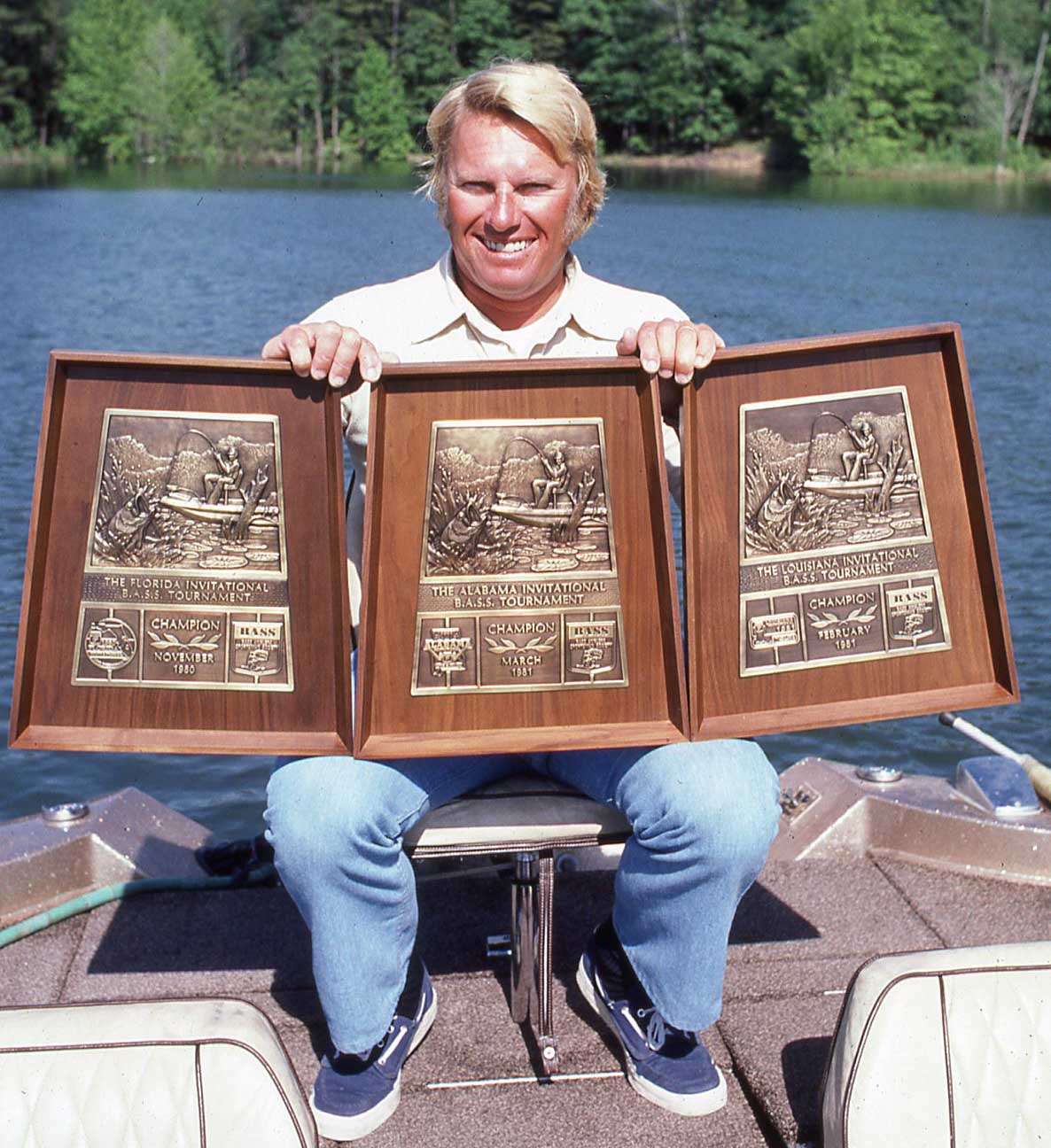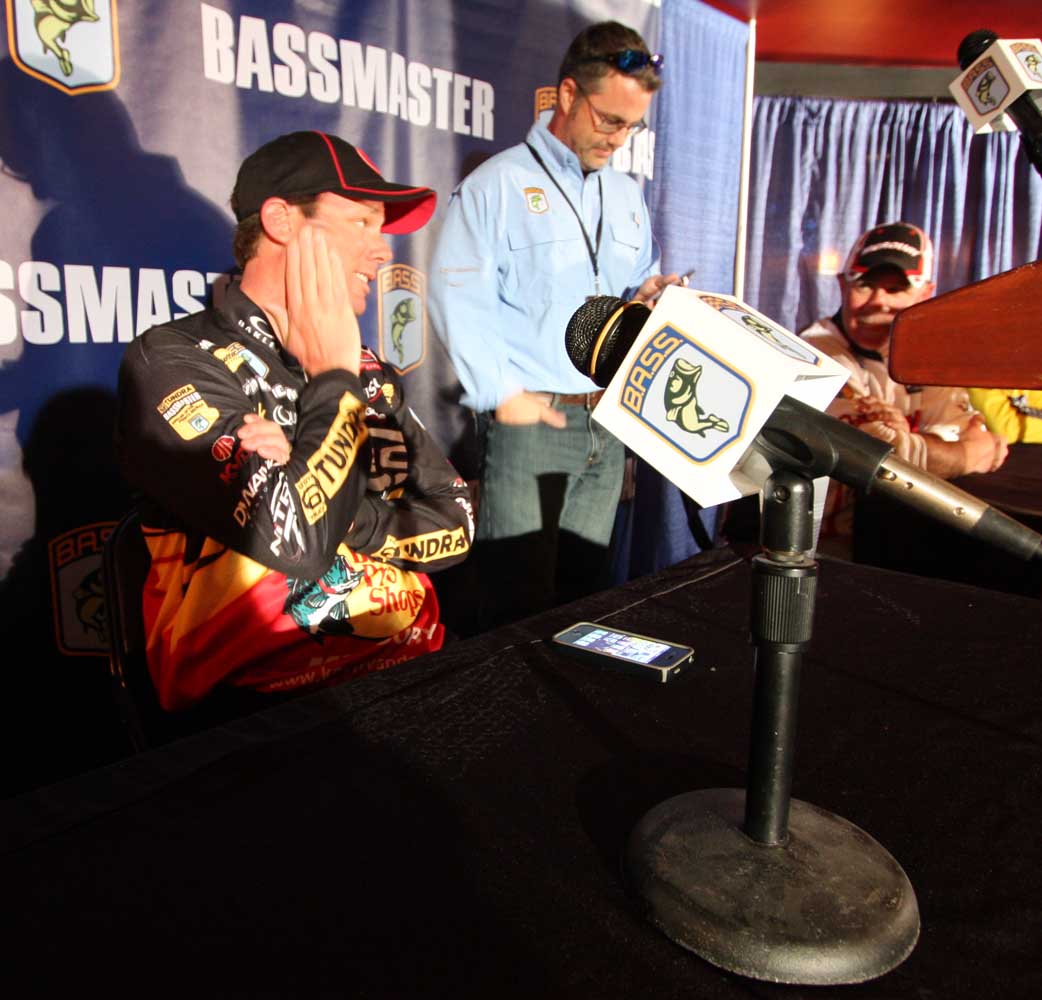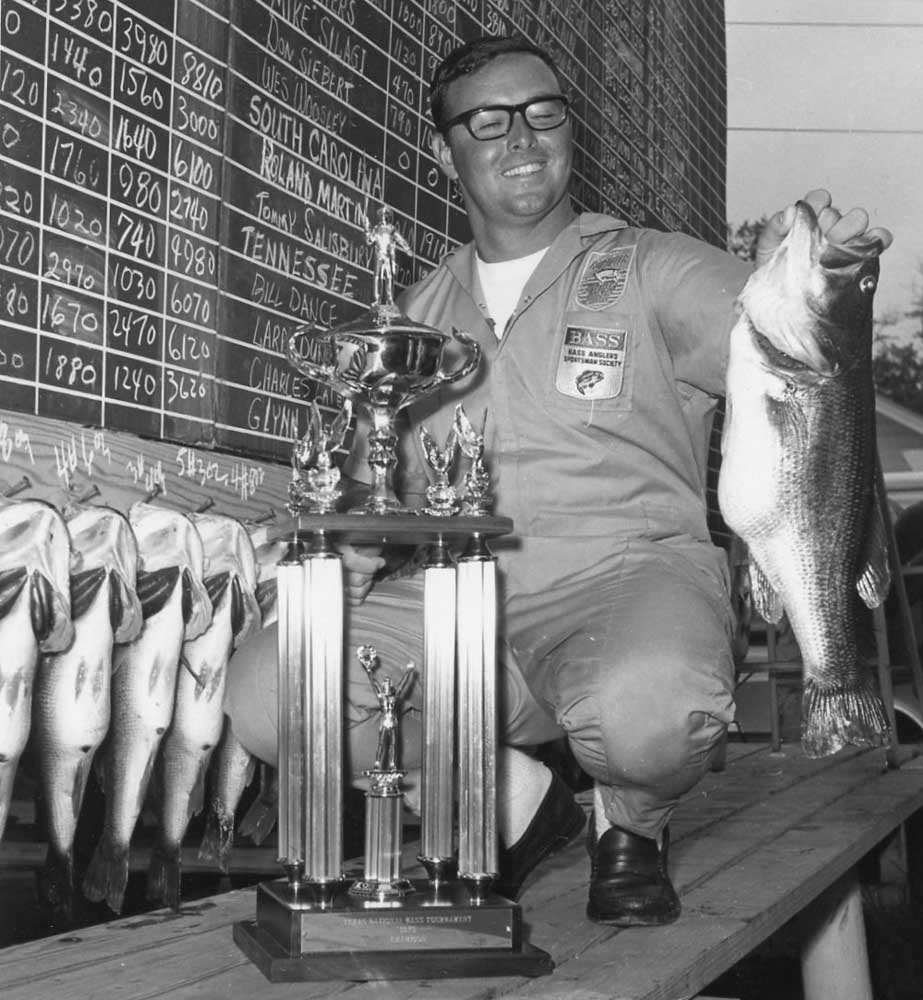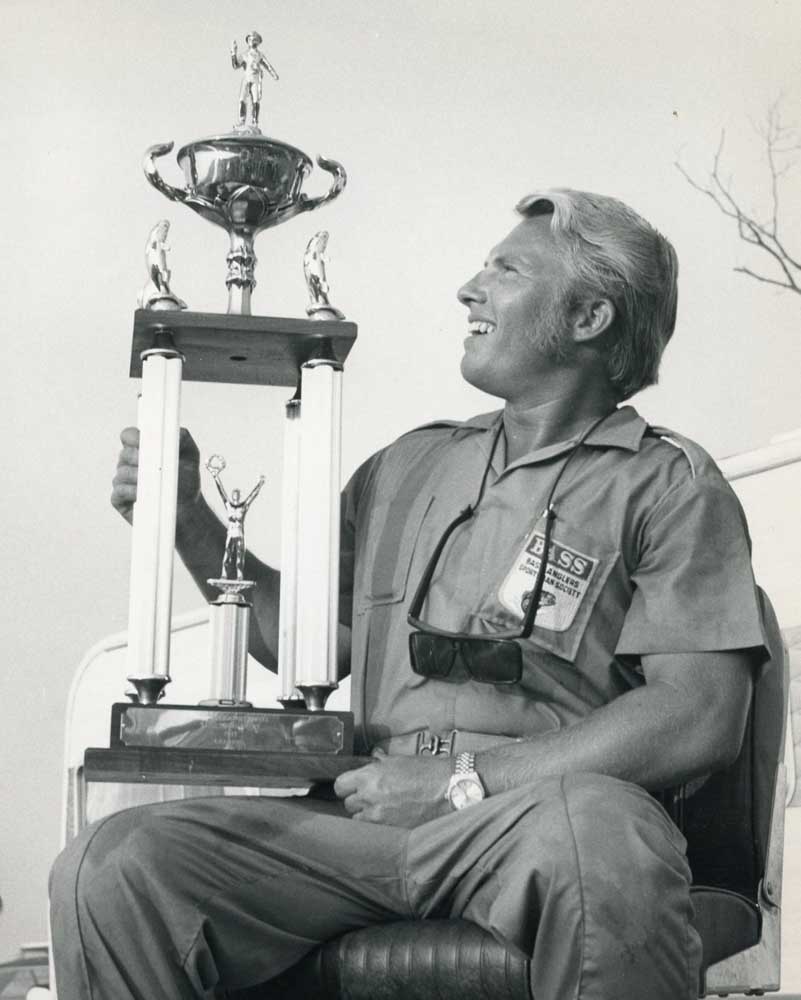
Do me a favor. Stop calling Kevin VanDam the most dominant angler in B.A.S.S. history.
The problem is that it’s not true … not even close.
If you want to call KVD the best of all-time (BOAT) or the greatest that ever was or something like that, go right ahead. I agree. I’ve said it before and think it’ll be a long, long time (maybe never) before he loses his spot on top of the mountain.
But he is not the most dominant angler in history. In fact, he ranks a pretty distant second.
Roland Martin was the most dominant angler in B.A.S.S. history — hands down.
Fans (not just sports fans or fishing fans) have an unfortunate tendency. We forget the accomplishments of the greats once they leave the stage. Often it begins even before they retire, when they’re just past their prime and starting on the downward slope that eventually ends their career. When they finally hang it up we’re already thinking that the game has passed them by, that even at their best they wouldn’t be as impressive as the newest stars.
It’s a mistake, but it happens to everyone — Babe Ruth (who fizzled in his Boston Braves years), Jerry Rice (who hung on a little too long with the Oakland Raiders), even Michael Jordan (who made an awkward comeback with the Washington Wizards three years after retiring). I even remember a poll of music fans about 35 years ago that ranked Queen ahead of the Beatles when asked to pick the greatest rock and roll band of all-time.
I understood that “Another One Bites the Dust” was on top of the charts, but really? Queen?
To add to our short attention spans and memories, we start deducting points for things that really shouldn’t count against a legend’s career. Bill Russell won 11 NBA titles, but he was a lousy television announcer. Ted Williams hit .400, but he was a failure as a manager. Roland Martin won nine AOYs, but he’s responsible for the Helicopter Lure. O.J. Simpson won the Heisman Trophy, but … well, you know.
It all contributes to our losing perspective, and it works to the benefit of the current superstar — whoever that might be. Right now, it’s in KVD’s favor. His seven Toyota Bassmaster Angler of the Year titles and four Bassmaster Classic wins are fresh in our minds. But one day they won’t be. One day — maybe 25 or 30 years from now — a big percentage of the fans following the sport will never have seen VanDam in person or even on television or the web … or whatever passes for mass media then. They’ll recognize the name and maybe even a few of the accomplishments, but they won’t have an appreciation of his place in the sport.

They’ll look at his seven AOYs and four Classics the way we look at Cy Young’s 511 career wins in baseball — an anomaly, something that could never be achieved in the “modern” game.
And maybe they’ll be right about that, but they’ll be wrong to dismiss VanDam’s excellence just because he didn’t compete in their era. KVD’s mastery may be defined by his times, but it’s not confined to them.
The same is true for Roland Martin. It’s been a while since he competed in a Classic (2003), won a tournament (1997) or captured an AOY (1985). His career started a long time ago with a second place finish at Toledo Bend Reservoir in 1970, and few who followed the tournament trail then are still watching.
But no one has ever dominated the sport of professional bass fishing the way Martin did in the early 1970s … and no one ever will. Bold statements, but I can back them up. First, though, I want to talk about dominance and how it really works in sports.
True dominance in a sport usually only happens in its infancy. When a sport is new, there are few participants, few standouts, few “naturals” and few individuals who have dedicated their lives or careers to the activity. The longer a sport has been around, the more people are playing, the longer they’ve been playing and the more likely they are to have built their world around it.
For all practical purposes, tournament bass fishing was born in 1967 when B.A.S.S. founder Ray Scott held the All-American on Beaver Lake in Arkansas. One hundred and six anglers paid $100 each for the chance to win $2,000 and a trip to Mexico. It would be years before anyone would dare call himself a professional angler on his tax return.
Without a financial incentive making a livelihood as a pro angler viable, few were willing to scrap their careers in other industries to make the leap. It was a sport for amateurs and those in the tackle industry who saw an opportunity to promote their products. As a result, only a couple of competitors stood out.
They were Bill Dance and Roland Martin, and they were the breakout stars of the sport’s first few years.

Dance finished second in Scott’s first tournament on his way to running off seven straight top 7 finishes (including three wins and two seconds). In his first 19 events, he was never worse than 19th and placed in the top eight 17 times! That’s dominance, but when Roland Martin came along in 1970, he quickly put his own stamp on the sport.
Like Dance, Martin started his tournament career with a second place finish. In his first 23 events, he was never worse than 16th and placed in the top five 21 times! And in case you’re wondering, the fields were big then — half again as large as the Elite Series. The average field was more than 154 anglers for those events.
Martin was like Godzilla amongst a pack of Teletubbies. It was a period of domination that the sport has not seen since — not even with Kevin VanDam.
And before you start to pick it apart by denigrating Martin’s competition, I’ll save you the trouble. They were mostly pretty bad … but that’s what it takes to dominate. You need to stand head and shoulders above your competition. You need to be Wilt Chamberlain against a smaller, slower, less athletic NBA. You need to be Edwin Moses against hurdlers who haven’t figured out your stride technique. You need to be Roland Martin against anglers who don’t know how to use their sonar, who are slow to learn new techniques, who lack a network of quality anglers to learn from and who rarely fish very far from home.
But just because Martin’s competition in the early 1970s was less formidable than what VanDam faces today doesn’t mean the path was easy. Larger fields, pro-on-pro formats and anglers who cherry-picked events on their home waters all made things challenging for Martin. He was just great enough to overcome it all.
And his dominance didn’t end in the early ’70s, either. The same skill set that put the Great American Fisherman on top kept him there for almost two decades.
In 1980 and ’81 he became the first angler in B.A.S.S. history to win three tournaments in a row. His victories at Okeechobee, Toledo Bend and Eufaula came against an average field of 270 anglers! By then, the rest of the sport was catching up to Martin, but he still outshone the competition. When KVD notched three in a row in 2005, he did it against an average field of 49 — quality sticks, yes, but less than a fifth of what Martin faced.

No one will ever dominate bass fishing’s highest level the way Martin did because no one will ever enjoy the separation that Martin had between himself and most of the other anglers. In his heart of hearts, he launched knowing that he only had to beat about 10 or 20 percent of the field in order to win.
VanDam has said numerous times that it’s a challenge to stay on top because the competition keeps getting better. That’s not just the king throwing a few crumbs to the multitudes; it’s true. The bottom is getting closer to the top all the time.
When I was a kid, it was a cliché to hear someone say that 10 percent of the fishermen catch 90 percent of the fish, but it was also probably true. Today no one says that. It’s more like 50 percent of the fishermen catch 90 percent of the fish. The learning curve is flatter, technology helps to level the playing field, and there are more anglers willing to work at the craft than there were 40 years ago.
It means that staying on top of the bass fishing mountain is tougher than ever. It means more different anglers are going to win the sport’s biggest titles. And it means there will never be another dominating force like Roland Martin.
Is Kevin VanDam the greatest bass angler in history? Absolutely.
Is he the most dominant ever? Absolutely not.
So stop saying it.

